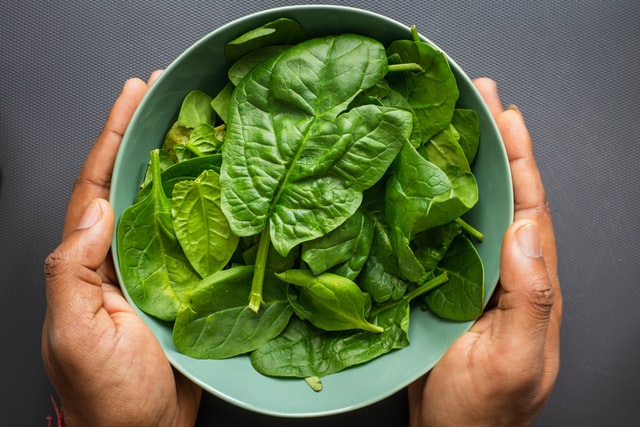Do Carrots Help Your Eyesight? Let’s Find Out
Throughout our childhood, we constantly hear popular myths and rumors. Nowadays, many of these tales have been firmly and scientifically debunked.
Still, some contain at least one or two grains of truth. A good example of this is “carrots are good for eyes.” Is there any truth to this common belief that consuming carrots is good for the eyes? The answer is; both yes and no.
If you have less than perfect vision, carrots will not improve your visual acuity.
Carrot consumption will also not give 20/20 vision to someone who has very poor vision. But the vitamins in vegetables as a whole are good for your eye health.
Carrots contain beta-carotene, a substance that the body converts into vitamin A, which is important for eye health.
Do Carrots Help Your Eyesight: Carrot and Eye Health

Do carrots help your eyesight with vitamin A supplements
Carrots are a food rich in beta-carotene, a carotenoid pigment found in many orange fruits and vegetables. Beta-carotene is an important precursor for vitamin A.
Vitamin A deficiency has been proven to be the leading cause of blindness.
Vitamin A deficiency can also cause xerophthalmia, a disease in which the eyes cannot produce more tears, causing dry eyes, swollen eyelids, and corneal ulcers.
On the other hand, vitamin A can prevent cataract formation and macular degeneration (yellow spot disease), which are the main causes of blindness in the world.
However, if your vision problems are not caused by vitamin A-related issues, your vision will not change regardless of how many carrots you eat.
If you wondering do carrots help your eyesight, we have to tell you that carrots aren’t the only vegetables that contain beta-carotene that help your eyes.
Other orange foods, such as; sweet potato, mango, pumpkin, apricot, and melon are also sources of beta-carotene. This food item is also found in dairy products such as milk and cheese and egg yolk.
But you need to be careful about how much you consume fruits and vegetables that are rich in beta-carotene.
Because beta-carotene is a pigment and can cause your skin color to change to orange. Although harmless, if you experience such a situation, you should consult a doctor to make sure you follow a balanced diet.
Your body absorbs and uses beta carotene more efficiently when you eat cooked carrots instead of raw ones. What’s more, vitamin A and its precursors are fat-soluble. Therefore, eating carrots increases absorption.
In addition to this nutrient, carrots also contain lutein, an antioxidant. It has been concluded that foods rich in lutein increase the pigment density in the oval-shaped yellow spot (macula) next to the retina layer of the eye.
The higher the pigment concentration in the yellow spot, the better retina protection and the lower your risk of macular degeneration. In addition to carrots, spinach, kale, black and leafy greens also contain lutein.
So what conclusion should we draw from this? Eating carrots regularly is good for the eyes, but it won’t improve your vision.
Eating carrots regularly is good for the eyes, but they do not heal eyes that have lost their health. Now, as before, whether you are myopic or hypermetropic, glasses are what will help you with most vision problems.
Other Health Benefits of Carrots
- Supports digestive health: Carrots are high in fiber and help prevent constipation. A carrot has about 2 grams of fiber, or 8% of the daily value and this vegetable also heals your gut bacteria.
- Protects your skin: Although not as effective as sunscreen, beta carotene and lycopene antioxidants help protect your skin from sun damage.
- Supports weight loss: Carrots are low in calories and high in fiber. Eating them increases feelings of fullness, which can prevent overeating and aid weight loss.
- Good for your heart health: Red and orange carrots are high in lycopene, a heart-protecting antioxidant. Carrots also reduce heart disease risk factors such as high blood pressure and cholesterol.
- Stabilizes blood sugar: Carrots have a low glycemic index, which means they don’t cause a large spike in blood sugar while eating them. Fiber content also helps balance blood sugar levels.
- It reduces the risk of cancer: Fiber-rich foods, such as carrots, help protect against colon cancer by promoting digestion. Also, some antioxidants in carrots have been shown to have anticancer effects.

Does carrot help your eyesight? What are the other options for eye health
You should also remember that you can maintain eye health by avoiding prolonged sun exposure, limiting screen time and blue light, exercising regularly, eating dark green leafy vegetables, and having regular eye exams.
See Also:
4 Best Vitamins for Healthy Eyes

As a nutritionist, I research, find and experiment with recipes, natural diets and meal plans for weight loss, bodybuilding, and detoxing.
